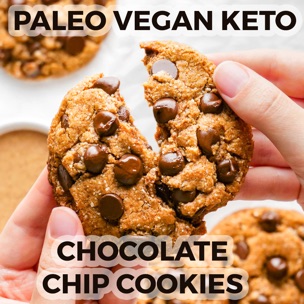Is yeast gluten-free? Some types typically are, but some types aren’t. Read on to learn which types and brands are gluten-free!
When you decide to go gluten-free, you’ll find that you’ll have to do a lot more research than you anticipated. From scrutinizing labels to asking questions and reading articles like this one, you’ll need to know what foods are off-limits for your new diet.
What Exactly Is Yeast?
Yeast is one of those foods that causes a lot of confusion among gluten-free people and the general public. What precisely is yeast, is it gluten-free, and what else do you need to know about it?
Starting with the basics – yeast is a fungus that comes in various forms. There’s even one that lives in your body! Yeast cells grow in a different and much faster method than animal cells.
They are also vital in fermentation, in which yeast converts carbohydrates into alcohol. Yeast can also produce carbon dioxide, which helps your bread rise during the proofing process.
Types of Yeast
The four most common forms of yeast present in food are:
• Baker’s Yeast
Baker’s yeast is the common name for yeast strains often used as leavening agents in baking bread and other bakery items. Baker’s yeast comes in three forms: instant yeast, active dry and fresh yeast.
• Yeast Extract
This product is a transparent, water-soluble form of yeast that is produced by the yeast’s own enzymes. It is obtained by pasteurizing or deactivating yeast. Consequently, you get a product that is quite adaptable and can be used in a variety of ways in the kitchen.
• Brewer’s Yeast
Brewer’s yeast (Saccharomyces cerevisiae) is a byproduct of the beer-making process. It is a common form of sugar beet-based yeast used to make beers, wines, and many types of spirits. It normally comes with “postbiotics” or non-living yeast in its supplements.
Brewer’s yeast is a good source of protein and B vitamins. It also contains chromium, which may aid in the better utilization of insulin and the reduction of blood sugar levels.
• Nutritional Yeast
Nutritional yeast is a kind of yeast that has been deactivated and is high in vitamins, minerals, and nutrients. It has a savory, cheesy flavor and may easily be substituted for vegan cheese. Sugar beet molasses or cane sugar are used to cultivate nutritional yeast.
It’s less bitter than sugar beet-based brewer’s yeast and has a cheesy, nutty flavor. It’s abundant in B vitamins, selenium, and zinc, but it lacks chromium, unlike brewer’s yeast. Some people also use nutritional yeast as a popcorn topping (like in this Vegan Popcorn)!

Is Yeast Gluten-free?
Having looked at the different types of yeast, you may wonder if they are all equal and whether they are gluten-free. Well, in terms of nutrition, they vary and the same applies to being gluten-free.
- Baker’s yeast – this is what you use to make your bread rise and it’s gluten-free.
- Nutritional yeast – this is used as a supplement and in vegan recipes, and is normally gluten-free.
- Yeast extract – autolyzed yeast and yeast extracts may contain gluten from barley. Because yeast extract manufacturers are not obligated to mention the source of their product on the ingredients label, you should only use yeast extract that is labeled gluten-free or has been tested gluten-free by the manufacturer.
- Brewer’s yeast – Gluten is commonly found in brewer’s yeast, which many people use as a dietary supplement.
The majority of brewer’s yeast is a byproduct of the beer brewing process and contains gluten from the barley used in beer production. Although there are a few gluten-free brewer’s yeast products on the market, typically, most brewer’s yeast contains gluten.
What Might Prevent Some Yeast Types From Being GF?
The majority of brewer’s yeast is a byproduct of the beer brewing process and contains gluten from the barley used in the production of beer. Though there are some gluten-free versions of brewer’s yeast made from sugar beets, these are not as common. As such, if brewer’s yeast isn’t labeled, don’t use it.
As for yeast extract, its contamination comes from barley as well. It is a product of brewer’s yeast and is therefore commonly contaminated with gluten. It’s therefore a no-go zone as long as it is not gluten-free certified.
Gluten-free Baker’s Yeast
- Fleischmann’s – this well-known yeast brand comes in red and yellow packages and jars. According to the firm, their Fresh Active yeast, Bread Machine yeast, Pizza Crust yeast, Rapid Rise yeast, and Active Dry yeast are all gluten-free. Their homemade baking mixes however contain gluten.
- Bob’s Red Mill – their gluten-free active dry yeast comes in an 8-ounce box. They are extremely strict with gluten-free matters and as such, go the extra mile to cut down cross-contamination. In light of this, they have separate factories for gluten-free grains to keep them away from other gluten-containing foods.
- SAF, Red Star, and Bakipan – all these brands come from Lesaffre Yeast Corporation and are gluten-free except for Red Star Platinum, which contains enzymes produced from wheat flour. If you prefer Red Star yeast products, Red Star quick rise yeast and Red Star active dry yeast are great options. They sell yeast in retail as well as in bulk for the catering industry.
Gluten-free Nutritional Yeast
- Nuts.com – this nutritional yeast is grown on an enriched purified cane and beet molasses. The online outlet specializes in gluten-free nuts but also carries other products. It’s free from cross-contamination because all products that contain gluten are handled separately from their non-gluten-containing products.
- Foods Alive – this brand notes that because the nutritional yeast “doesn’t come in contact with barley (like brewer’s yeast), it is gluten-free and safe for people with celiac disease.” It’s also non-GMO, vegan, and kosher.
- NOW – note that these are considered “no gluten ingredients” as opposed to “gluten-free.” NOW states that they are not manufactured with gluten-containing ingredients but are produced in a facility that uses gluten ingredients.
- Bob’s Red Mill – Like Bob’s baker’s yeast, their nutritional yeast flakes are gluten-free. They come in 5 oz. bags.
- Bragg – this nutritional yeast seasoning is a vegan and vegetarian favorite. It’s also sugar-free and kosher.
Gluten-free Brewer’s Yeast
• Lewis Labs
Lewis Labs claims to have “searched the world” for a gluten-free, non-GMO, and all-natural product. In a 12.35 oz. tin, you’ll find sugar beet-based yeast flakes. It’s free of allergens, although it’s made at a facility that also handles peanuts.
• Bluebonnet Super-Earth
Unlike traditional grain-derived brewer’s yeast, this product is carefully grown on certified non-GMO sugar beet molasses according to the packaging, which comes in 1 and 2 pound powder and 1 pound flakes packages. Bluebonnet is gluten-free, soy-free, dairy-free, non-GMO, vegan, and kosher, but it’s manufactured in a facility with pretty much all the top allergens.
This brand is the one I used in my No-bake Lactation Cookies and it was great!
I hope I’ve answered your question! While most yeast is gluten-free, not all is. That makes finding entirely gluten-free products easier said than done. But there’s always a way to make sure you’re safe – look for gluten-free-labeled items. This way, you don’t have to be concerned!
Any other questions? Leave them below and I’d be happy to help answer them!


